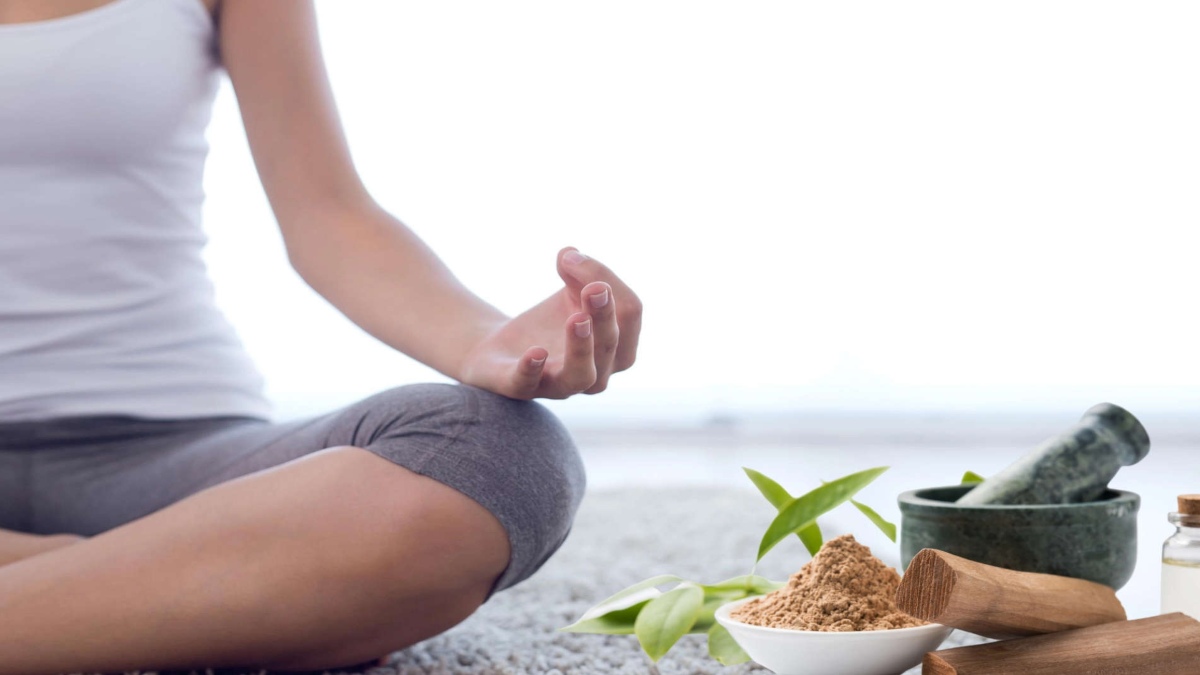


The BJP government has given a tremendous and laudable impetus to the Indian traditional science of Ayurveda. As the world is grappling with the onslaught of the Covid pandemic, all eyes today are on India as every household adopted the precautionary measures of consuming kadha, the spiced herbal decoction to boost immunity. This age-old wisdom of Ayurvedic herbs and the old Sanatan essence of life ensured that the pandemic was better contained.
In 2014, when the BJP came to power, emphasis was given to Ayurveda by introducing a Ministry with a designated minister for Ayurveda. Narendra Modi also initiated International Yoga Day, taking a firm call to revive the roots of our rich heritage. In his words, “Yoga is an invaluable gift of India’s ancient tradition.” The current situation is the right time for Ayurveda to become more popular globally. Inaugurating the fourth edition of the Global Ayurveda Festival 2021, he said Ayurveda could rightly be described as a holistic human science.
“From plants to your plate, from matters of physical strength to mental well-being, the impact and influence of Ayurveda and traditional medicine are immense.” In a recent introduction to a 3,500-year-old legacy embodied in Vaidyaratnam, Dr Raghvan Ramankutty has created an immense and radical shift in my ideas of well-being and wellness. At the same time, it dawned on me that there has been a systematic erosion of our great legacy from our consciousness. Dr Raghvan has been practising Ayurvedic treatment for more than five decades across three continents. A healthy body or “poorna sharira” in the doctor’s words is a body that is not only free from disease but is also “swastham” that is in a peaceful state.
I was awestruck with the significance of pulse examination which is the focal point of Dr Raghavan’s treatment. By feeling the pulse of the patient, the roots of an ailment are identified. Whatever happens to us physically or mentally is indelibly imprinted in us in a microscopic form. During pulse examination, this comes to the fore in a crystal-clear manner. An experienced physician can decipher and decode these vibrations. These findings help to narrow down the diagnosis. It is a scientific technique. But to master this, one needs deep study and an expert teacher.
Dr Raghvan says: “We treat the patient whereas others treat the disease. Through pulse examination, he gets a clear picture of not only the physical and mental state of the orient but also an idea of how the patient will respond to different medicines. In other words, we don’t zero in on paracetamol for all fevers. The patient will be analysed in detail to find out his individualistic tendencies, underlying cause, and individualistic reactions to the treatment. Then a treatment is decided for fever.”
Each patient is unique and is prescribed a different medicine for the same disease. Ayurveda is based on three principles of hetu (root cause), lingam (symptom), and aushadham (medicine). This is the precision of a doctor who began his training at the age of nine with his Guru Swami Dhananjaya Dathathreya Dev. For 3,500 years, the Dathathreya heritage has preserved the knowledge of Ayurvedic medicine in its pristine purity.
There is great humility and reverence for the Guru, who evolved as a father, mother, brother, and friend for Dr Raghvan. As our Prime Minister has observed innumerable times, the Ayurveda is not just a vast medical system, it is also a spiritual journey. Dr Raghvan travelled to 44 countries to learn about treatments and plants, took guidance under stalwarts in Vedic studies, Himalayan monks, and Ayurveda experts.
In Dr Raghavan’s words, “Ayurveda is based on “sidhanta” or axiomatic principles, it has got a cure for whatever diseases exist and are likely to pop in the future.” He chooses to erase words like impossible, incurable, and last stage from a physician’s dictionary. And that’s because he has successfully handled and treated innumerable health conditions deemed incurable by modern science. There are over 80 different types of autoimmune diseases without any established cure. Debilitating conditions like Cerebral Palsy, Down Syndrome, Autism, Sleep Apnoea, Optic damage, Spinal injuries, Rheumatoid Arthritis, Polymyositis, Diabetic complications as well as rare diseases like Rett Syndrome, Kabuki Syndrome, Rheumatic chorea are all being successfully managed by Ayurvedic treatment with patients testifying to having a more stable life in doctor’s care. During the Chikungunya epidemic, Dr Raghavan successfully treated 16,700 patients at 72 camps.
Our Prime Minister has always extolled the benefits of yoga and Ayurveda in providing preventive and protective health strategies to cope with stress and cure stress-induced complicated diseases. And now, with the world engulfed in a pandemic and modern medicine grappling with its limitations, I think that the solution lies in the hands of stalwarts like Dr Raghvan. Narendra Modi has announced that India is the right place for wellness tourism precisely because we have Ayurvedic practitioners like Dr Raghvan whose experience and commitment to his patients is pure and optimistic. Hopefully, it will be a step that leads to better recognition and acceptance of Ayurveda as a panacea for not only known but also incurable conditions.
The writer is a BJP spokesperson. The views expressed are personal.